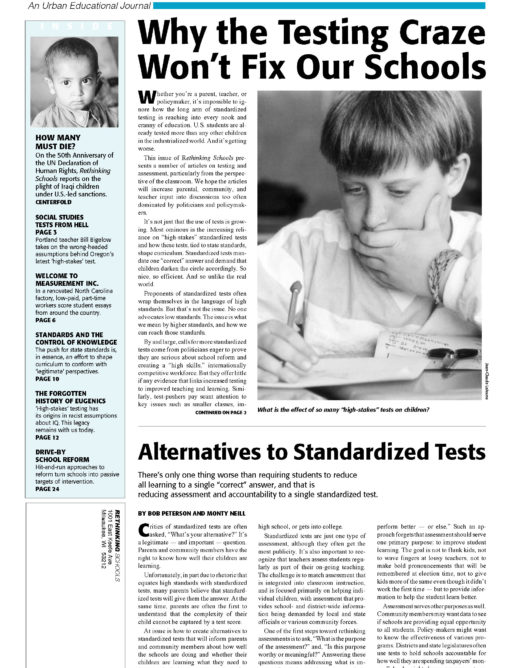Preview of Article:
The Influential E.D. Hirsch
Hirsch's message strikes a chord with many teachers and parents. But what are the assumptions behind Hirsch's prescription for school reform? And will his proposals get us where we need to go?
First, let’s take a look at Hirsch’s assumptions about classroom life. In his books, Hirsch writes as if every district, every school, and, indeed, every classroom teacher is free to interpret and teach the subject matter as their wills dictate. Based on this assumption, he believes there are insufficient pressures on teachers and schools to promote uniformity.
Hirsch assumes, without evidence, that most classroom teachers are the educational descendants of progressive educators like William Kilpatrick, and that most classrooms are dominated by the project method and other progressive innovations. Unfortunately, he mistakes the talk of some professors of education, often misconstrued and taken out of context, as the reality of the American public school. He provides an image of the typical classroom as some Deweyesque laboratory school where children or their teachers do whatever they want, whenever they want.
This is not just an historical issue. If Hirsch is wrong — if, for example, progressive educators have not been successful in wiping out rote memory from the classroom, if this be their intent, or if, as some studies have shown, rote memory is more common in schools with large numbers of poor and minority children — then he misunderstands the cause of classroom failure.
Hirsch, for example, neglects to analyze the multiple influences on teachers, or the extent to which teachers may even use the “project method” or other related pedagogies. He certainly provides no surveys of teachers to discover what their classrooms are actually like. In fact, Hirsch fails to acknowledge that a lot of testing goes on in schools of the kind he supports. Nor does he acknowledge that such testing is increasing so rapidly that there is considerable concern about the effects of over-testing children. As a result, Hirsch tells us what he thinks are the costs of progressive methods, but not what might be the costs of a heavy reliance on tests.
Equally important, in his emphasis on content, Hirsch underestimates the importance of pedagogy. His view of education emphasizes teacher talking to students, rather than listening to them — but more on this later.</p

